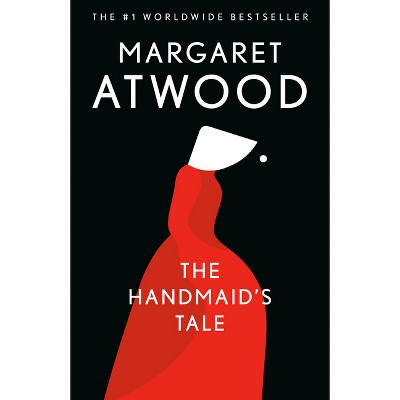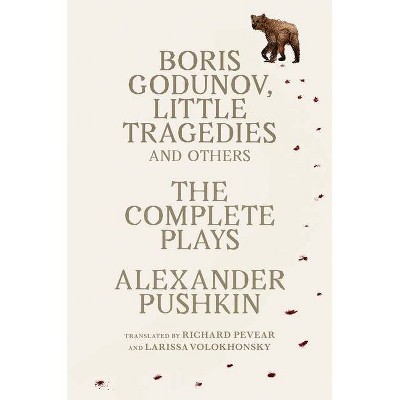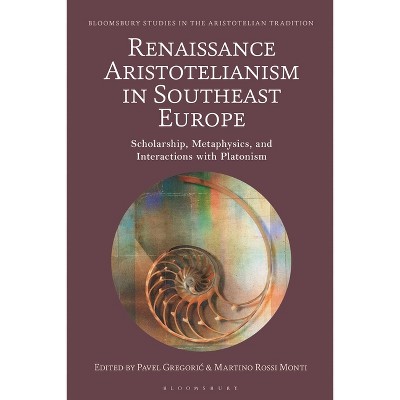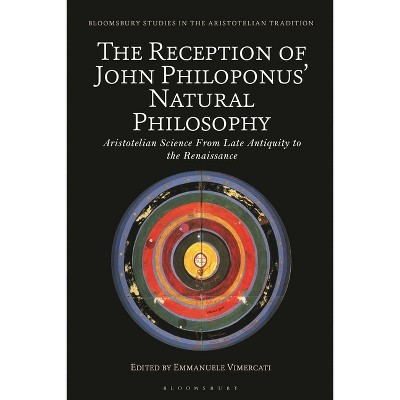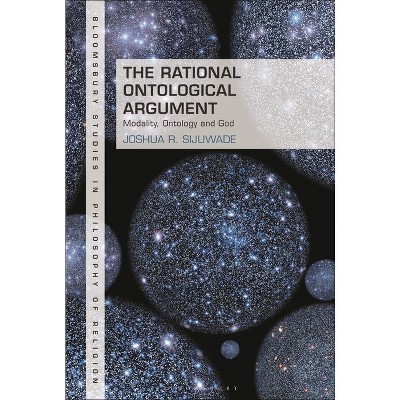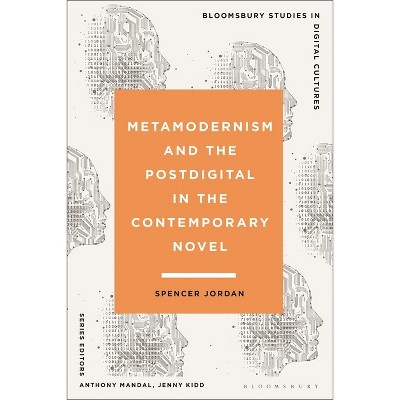Sponsored

Aristotle's Organon in Old and New Logic - (Bloomsbury Studies in the Aristotelian Tradition) by Colin Guthrie King & Venanzio Raspa (Hardcover)
In Stock
Sponsored
About this item
Highlights
- Aristotle's 'Organon' in Old and New Logic: 1800 -1950 explores the receptionand interpretation of Aristotle's logic in a time period which was crucial for thedevelopment of modern logic.
- About the Author: Venanzio Raspa is Professor of Theoretical Philosophy at the University of Urbino, Italy.
- 304 Pages
- Philosophy, Logic
- Series Name: Bloomsbury Studies in the Aristotelian Tradition
Description
Book Synopsis
Aristotle's 'Organon' in Old and New Logic: 1800 -1950 explores the reception
and interpretation of Aristotle's logic in a time period which was crucial for the
development of modern logic. Authors investigate how Aristotle's logic played a
role in both the pre-mathematical or "old" logic and in the several strands which
would constitute a new algebraic or formal-semantic logic. The volume also includes
a translation of Olga Hahn's path-breaking dissertation, which sought to integrate
Aristotelian strategies of perfection into an algebraic representation of the syllogism.
This in-depth study of Aristotelianism covers logic in Kant and Hegel, together
with the problems and projects of interpreting Aristotle in the new logic after Boole
and Frege. Examination of modern debates concerning induction and abduction
offers further insight into Aristotelian logic during the period. By filling gaps in our
understanding of Aristotelian logic, this book not only provides a missing link in
21st-century studies of the history of Aristotelianism, but also sheds light on ancient
logic's role in the formation of modern logical theory.
Review Quotes
"Reasoning in form, Enrico Berti used to pledge, ought to be taught starting from adolescence. That each young adult be empowered to know that what s/he says is true ought to be considered as a human right. This book showcases two centuries of readings of Aristotle's Organon, one of the greatest books of the Western philosophical tradition. This book is about nineteenth-century and twentieth-centuries readings of Aristotle's Organon. The time span goes from Kant to Lukasiewicz. It is correctly old and new logic, which are divided by the threshold of the quantification of the predicate achieved in Boolean logic. An introduction and twelve well-argued chapters make the case for the choice of subject matter and periodization. " --Riccardo Pozzo, Professor of the History of Philosophy, The Pontifical Academy of Social Sciences, Italy
"This is a highly informative book on how the Organon was received in the period of resurgence of Aristotelian studies from the beginning of the 19th century onwards. Although it does not exhaust all the relevant contributions of the period, it does focus on some of the most significant ones and does so in a very enlightening way. The book fills a gap in our knowledge of the reception of Aristotle's Organon in the West." --António Pedro Mesquita, professor of Ancient Philosophy, University of Lisbon, Portugal. "We welcome this collection of studies on the evaluation, preservation, and criticism of Aristotelean logic in modern philosophy and science. This volume draws together a wide range of competent scholars to reflect on these arguments, and they provide evaluations of Aristotle which cannot be avoided in the study of logic." --Terence J. Kleven, Schnucker-Sessler Professor of Philosophy and Religion, Central College, USAAbout the Author
Venanzio Raspa is Professor of Theoretical Philosophy at the University of Urbino, Italy.
Colin Guthrie King is Associate Professor of Philosophy at Providence College, USA.

